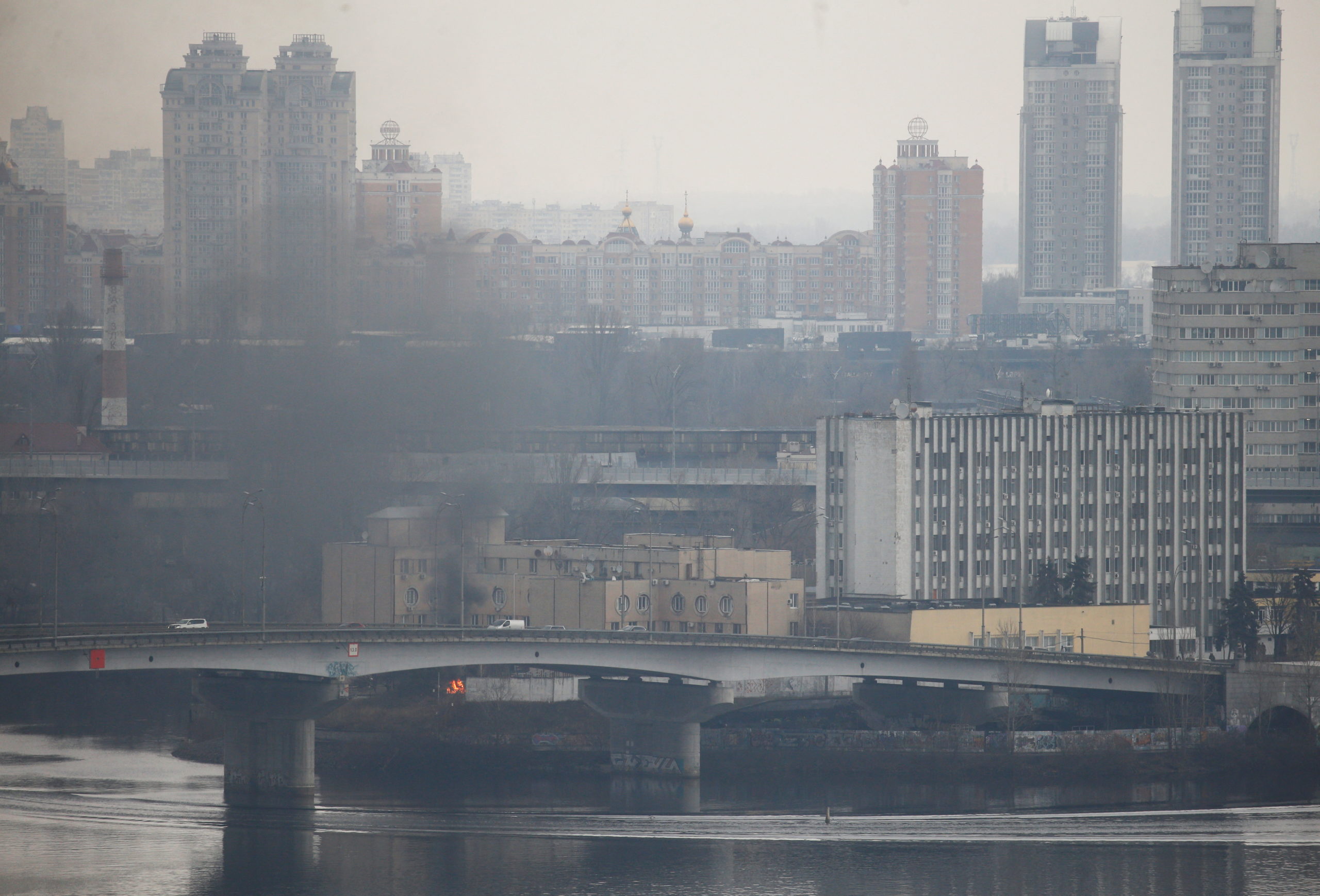Russia’s invasion of Ukraine will have spillover effects in the Arctic
The work of the Arctic Council, of which Russia holds the rotating two-year-chair, could be delayed.

Now that Russia has launched a full-scale invasion of Ukraine, it’s clear that the attack will have serious spillover effects in the Arctic, observers say — but exactly how extensive those effects will be remains to be seen.
One key area of concern will be in the Arctic Council.
The organization has consistently been touted as one of the forums in which Russia and other Arctic nations — many of whom are NATO members, and have tensions with Russia elsewhere — cooperate effectively. It’s even been nominated for the Nobel Prize several times in recent years for this reason.
That’s likely to change because of the invasion.
Much of the work of the Arctic Council actually takes place in its working groups, and some of that work could continue, said Marisol Maddox, senior Arctic analyst at the Wilson Center’s Polar Institute.
“However, some of the capstone events — like, for instance, the Arctic Resilience Forum for the Sustainable Development Working Group that’s supposed to be held in Murmansk this fall,” may be canceled, she said. “I’m a part of that work and I’m doubting that I’ll be traveling to Murmansk in the fall.”
[A Russian incursion into Ukraine will likely affect the Arctic — but exactly how is unclear]
The fact that this is happening while Russia holds the council’s two-year rotating chair “is an additional stressor to the Arctic Council, because Russia is hosting, on their territory, the SAO meetings and the ministerial that’s supposed to be a little over a year from now,” she said. That means it would be much more difficult for diplomats to attend such meetings.
That’s especially grim news because of how crucial some of those discussions are for the future of the Arctic, said Evan Bloom, a senior fellow at the Polar Institute and a former State Department official who helped establish the Arctic Council.
“The problem is, those meetings are really important because they bear upon climate change cooperation and working together on biodiversity and economic and sustainable development in the Arctic,” he said. “All of those are very important to all of the Arctic states.”
Both Bloom and Maddox spoke to ArcticToday earlier in the week, when Russian troops had entered the Donbas region but not yet begun of full-scale invasion of other regions of Ukraine.
After those attacks, Bloom noted in a follow-up email that President Joe Biden said in a Thursday press conference that there was a “complete rupture in U.S.-Russia relations.”
“I think the implication of that is that it will not be business as usual in U.S. dealings with Russia for the foreseeable future, and this will have an impact on cooperation in the Arctic Council, as well as in Arctic matters involving Russia more generally.”
While the Arctic Council is the most visible place where the U.S. and its allies have cooperated with Russia in the region, there are other areas where a shift could have significant impacts.
The U.S. and Russia also work together in the Arctic Coast Guard Forum, have maritime pollution agreements and have even undertaken joint patrols in the Bering Sea as recently as last year. Such cooperation is likely to be put on hold, but doing so could affect both countries’ ability to respond to emergencies along their extensive maritime border between Alaska and the Russian Far East.
In a call with journalists on Thursday, U.S. Coast Guard Commandant Adm. Karl Schultz expressed hope that the U.S. and Russia could still find common ground in the Arctic Coast Guard Forum: “That’s my goal is to continue to champion the same trajectory we’re on here,” he said.
There are also individual projects, such as international efforts to retrieve a pair of sunken nuclear submarines from Russian Arctic waters, that could be delayed because of these developments. That effort was to have been funded in part by the EU and would’ve removed a safety threat to both Russian and Norwegian fisheries, but could be scrapped or put on hold.
Putin’s economic ambitions in the Arctic could also further complicate these issues.
By 2024, he would like to be shipping 80 million tons of cargo through the Northern Sea Route, which could result in increased traffic through the Bering Strait.
That could increase the risks of miscommunication or unintentionally escalate conflict, Maddox said, at “a time when we really need to be increasing cooperation.”
There have also been more airspace incursions from Russia on a level not seen since the Cold War, as well as large-scale military exercises in Northern waters, Maddox said.
“If there was an accident or some kind of incident now, it has more potential for escalation because it could be misinterpreted,” she said.
After the annexation of Crimea, public conversations between Arctic military leaders ceased.
Clearer communications could prevent further escalation or keep conflict out of the Arctic — but that seems an increasingly distant prospect, Maddox said.
“This is the complete opposite direction that we need to be going.”